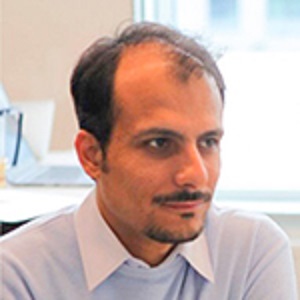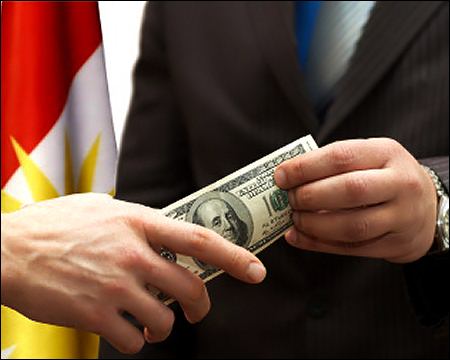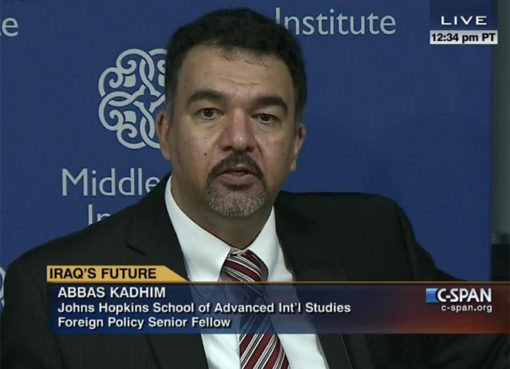Deputy Prime Minister and Minister of Finance, Ali Allawi held a brief press conference that painted a sobering picture about Iraq’s current financial situation. The presser came after an extraordinary cabinet meeting that debated Iraq’s strategy to face the current financial crisis and the measures to combat it, focusing largely on public sector reform and the development of the private sector.
Allawi started by pointing out that Iraq’s economic problem is not because of the COVID-19 epidemic and its impact on global economy per se, but due to the wrong financial policies pursued after 2003 that damaged the economic infrastructure further and were not able to fix Iraq’s accumulated economic problems caused by Saddam’s regime.
With regards to the dependence on oil, Allawi pointed out that 92% of Iraq’s revenues are from oil exports, which is unacceptable as it is dramatically higher than even the most oil dependent countries. Given the current low oil prices, the income for Iraq per month is 3 trillion IQD, when the overall expenditure amounts to 7 trillion IQD per month.
The Deputy Prime Minister talked about Iraq’s recent OPEC+ negotiations and pointed out that Iraq is committed to the deal of reducing 22% off its production. Before Iraq agreeing to the deal, Brent prices were at about $15 while they are now about $40, meaning that Iraq made more from the rise in price than the loss of income due to reduced production, which according to Allawi, was a good choice. Nevertheless, while it still seems beneficial to adhere to OPEC+ agreements, Allawi pointed out in regards to the distribution that Iraq will suggest a new scheme in which the percentage of production cuts should be based on a weighted equation that takes into consideration each country’s economic and financial situation in order to make them more fair. Allawi expressed his confidence that the oil prices will trend upwards again given the gradually improving global markets, but he warned that these will not return to previous levels to cover the deficit.
Iraq’s biggest expenditures are salaries, benefits, and pensions, amounting to an illogical rate of about 25% of Iraq’s GDP when the normal rate globally is between 5-10%. Allawi pointed out that the salary system is not the issue here, but rather the amount of people who depend on government for their living. According to Allawi, there are about 3.5 million full-time employees in the Iraqi state, plus half a million who work in state-owned enterprises, and up to 2.5 million pensioners, meaning that about 6.5 million Iraqis depend on the state for their income. Meanwhile, about 800,000 people enter the job market every year.
When it comes to the international community and international financial institutions, Allawi pointed out that while help is coming, it will not be like in 2014 when the oil prices dropped sharply. At that time, the international community was more supportive, taking into consideration that Iraq was fighting against Da’ish which posed a larger danger to global security. Today, the COVID-19 epidemic has impacted the international markets where the global economy has shrunk between 7-8% and one should not expect the same level of generosity. When asked about loans from international financial organizations, Allawi pointed out that Iraq has an agreement with the International Monetary Fund and is adhering to its terms. But while these loans are important to signal trust that Iraq is pursuing the right reform path, Iraq cannot expect more than $2 billion of funding, including the funds allocated to face the COVID-19 pandemic.
All this will leave Iraq in a spot where it must come up with alternative solution to fix its economy. Solutions for the short and middle-term must take into consideration adjusting Iraq’s public salaries, implementing a unified tax system, rebalancing benefits and subsidies, fixing Iraq’s customs tariff system, and reforming the financial structure of Iraq’s economy. Any changes in salaries and taxes must be fair, take low and middle-income families into consideration, and focus on high-income families. These measures should not affect prices, and ought to preserve Iraq’s Central Bank reserves.
When it comes to the customs tariff system, Allawi pointed out that Iraq could make up to 7 trillion IQD every year when it is currently only making 1 trillion IQD because about 50% of imports are tariff exempt. Furthermore, fee collection solutions, especially for electricity must be put in place. He also pointed out the need to restructure Iraq’s state-owned banks and introduce reform packages regarding foreign debts.
On the long-term, Allawi restated that the only solution is to boost Iraq’s private sector and encourage investment. To create a supportive environment, Iraq must engage in administrative reform and reduce its unfathomable bureaucracy, reduce waste, combat corruption, and actively seek local and foreign funding. Private banks need to be more involved in the economy, small loans for citizens need to be facilitated and foreign investors, especially those who pledged support during the 2018 Kuwait Conference, should be encouraged to keep their promises. Iraq also can expect around $1.5 billion in funding for projects from the World Bank and about $5-6 billion investment from Gulf countries, as well as investments from Japan and Western countries.
Allawi pointed out that all solutions will be discussed in a white paper to be voted on in Cabinet and later in the Council of Representatives within 3 months. Furthermore, Iraq does not have a budget for 2020, as it is depending on its spending from the 2019 budget plus a financial road map dubbed the ‘virtual budget’ to get by until the 2021 budget is passed.
Deputy Prime Minister Ali Allawi points out that only the private sector can save Iraq’s economy. While this is hardly news, it should not be underestimated how much Iraq can eliminate waste and restructure spending, as was started during Haidar Abadi’s term. Nevertheless, every solution Allawi suggested requires strong leadership that must overcome the political and administrative hurdles which prevent Iraq from progressing.
Muhammad Al-Waeli is a Ph.D. candidate in management focusing on leadership, reform, and institutions in Iraq.
Source: Iraqi Thoughts | Jun 11, 2020 | Economy, Featured |
https://1001iraqithoughts.com/2020/06/11/an-overview-of-iraqs-finances/








Comment here